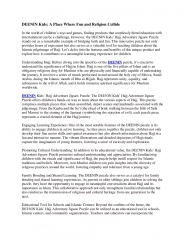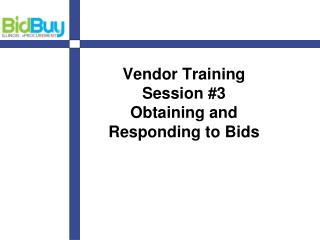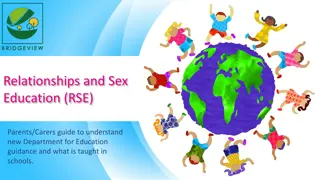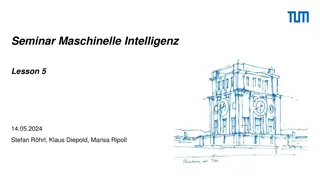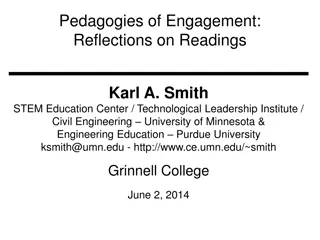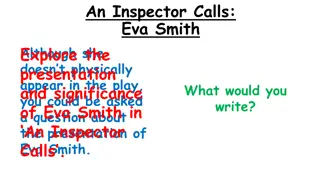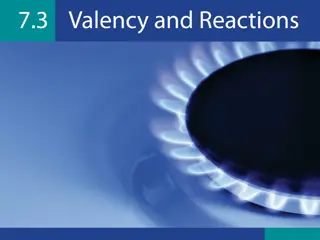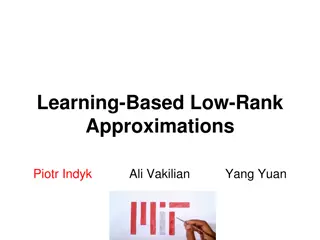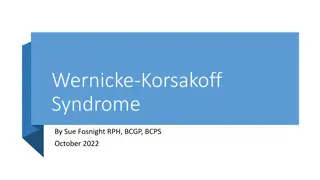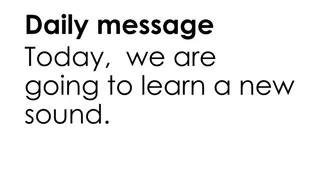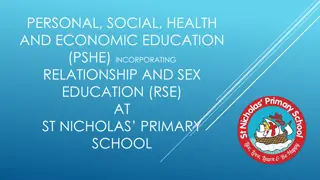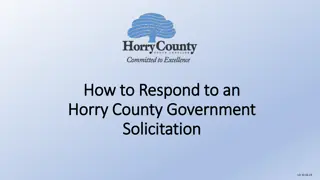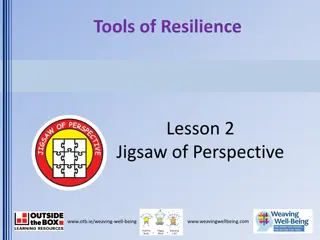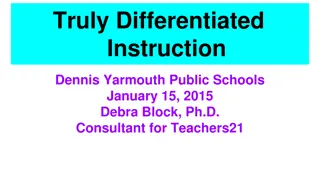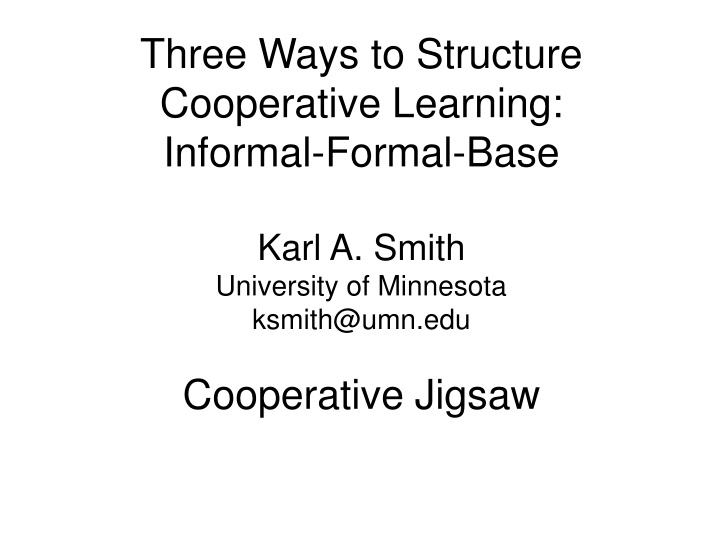
Creative Approaches to Cooperative Learning
Explore the innovative methods of Informal, Formal, and Base Cooperative Jigsaw learning structures for effective student collaboration. Discover the step-by-step process involving preparation pairs, consulting/practice pairs, and teach-and-learn groups. Enhance cooperative learning experiences to boost engagement and knowledge retention.
Download Presentation

Please find below an Image/Link to download the presentation.
The content on the website is provided AS IS for your information and personal use only. It may not be sold, licensed, or shared on other websites without obtaining consent from the author. If you encounter any issues during the download, it is possible that the publisher has removed the file from their server.
You are allowed to download the files provided on this website for personal or commercial use, subject to the condition that they are used lawfully. All files are the property of their respective owners.
The content on the website is provided AS IS for your information and personal use only. It may not be sold, licensed, or shared on other websites without obtaining consent from the author.
E N D
Presentation Transcript
Three Ways to Structure Cooperative Learning: Informal-Formal-Base Karl A. Smith University of Minnesota ksmith@umn.edu Cooperative Jigsaw
JIGSAW SCHEDULE COOPERATIVE GROUPS PREPARATION PAIRS CONSULTING/SHARING PAIRS TEACHING/LEARNING IN COOPERATIVE GROUPS WHOLE CLASS REVIEW
Preparation~ 20 min Teach & Learn ~ 15 min Informal ~ 5 min Formal ~ 5 min Base ~ 5 min
Cooperative Learning Jigsaw: 1.Overview CL Notes p. 8 All 2.Informal Cooperative Learning Notes pp. 9-13 (9-10) 1 3.Formal Cooperative Learning Notes pp. 14-20 (14-15) 2 4.Cooperative Base Groups Notes pp. 21-22 3
Preparation Pairs TASKS: a. Master Assigned Material Skim Chapter b. Plan How to Teach It To Group PREPARE TO TEACH: a. List Major Points You Wish to Teach 3 5 points b. List Practical Advice Related to Major Points c. Prepare Visual Aids/Graphical Organizers d. Prepare Procedure to Make Learners Active, Not Passive COOPERATIVE: One Teaching Plan From The Two Of You, Both Of You Must Be Ready to Teach
Processing Please complete the sentence: One thing you did that helped me learn was . . .
Consulting/Practice Pairs TASKS: 1. Find Someone Who Prepared To Teach the Same Section 2. Prepare Your Teaching Plan 3. Listen Carefully To Other s Teaching Plan 4. Incorporate Other s Best Ideas Into Your Plan COOPERATIVE: Ensure Both of You Are Ready to Teach
Teach and Learn Group TASK: Learn ALL the Material (All three sections) COOPERATIVE: Goal: Ensure All Group Members Understand All Sections of Material Resource: Each Member Has One Part Roles: Teach, Learn EXPECTED CRITERIA FOR SUCCESS: Everyone learns and teaches an area of expertise, Everyone learns others' area of expertise, Everyone summarizes and synthesizes INDIVIDUAL ACCOUNTABILITY: Professor Monitors Participation of All Learners Team members check for understanding Individual implementation EXPECTED BEHAVIORS: Good Teaching, Excellent Learning, Summarizing, Synthesizing INTERGROUP COOPERATION: Whenever it is helpful, check procedures, answers, and strategies with another group.
Jigsaw -- Role of Listening Members Clarify material by asking questions Suggest creative ways to learn ideas and facts Relate information to other strategies and elaborate Present practical applications of information Keep track of time Appropriate Humor
JIGSAW SCHEDULE COOPERATIVE GROUPS PREPARATION PAIRS CONSULTING/SHARING PAIRS TEACHING/LEARNING IN COOPERATIVE GROUPS WHOLE CLASS REVIEW
Jigsaw Processing Things We Liked About It Traps to Watch Out For
Cooperative Learning is instruction that involves people working in teams to accomplish a common goal, under conditions that involve both positive interdependence (all members must cooperate to complete the task) and individual and group accountability (each member is accountable for the complete final outcome). Key Concepts Positive Interdependence Individual and Group Accountability Face-to-Face Promotive Interaction Teamwork Skills Group Processing
15 http://www.ce.umn.edu/~smith/docs/Smith-CL%20Handout%2008.pdf
Professor's Role in Formal Cooperative Learning 1. Specifying Objectives 2. Making Decisions 3. Explaining Task, Positive Interdependence, and Individual Accountability 4. Monitoring and Intervening to Teach Skills 5. Evaluating Students' Achievement and Group Effectiveness
Cooperative Lesson Planning Form Grade Level: __________ Subject Area: ____________________ Date:__________ Lesson: ________________________________________________________________ Objectives Academic: ______________________________________________________________ Teamwork Skills: _______________________________________________________ Preinstructional Decisions Group Size: __________ Method Of Assigning Students: ____________________ Roles: _________________________________________________________________ Room Arrangement: ____________________________________________________ Materials: _____________________________________________________________ One Copy Per Group One Copy Per Person Jigsaw Tournament Other: ______________________ Explain Task And Cooperative Goal Structure 1. Task: _______________________________________________________________ _____________________________________________________________________ 2. Criteria For Success: _________________________________________________ _____________________________________________________________________ 3. Positive Interdependence: ____________________________________________ _____________________________________________________________________ 4. Individual Accountability: ___________________________________________ 5. Intergroup Cooperation: ______________________________________________ 6. Expected Behaviors: ____________________________________________________
Monitoring And Intervening 1. Observation Procedure: ______ Formal ______ Informal 2. Observation By: ______ Teacher ______ Students ______ Visitors 3. Intervening For Task Assistance: _____________________________________ ______________________________________________________________________ 4. Intervening For Teamwork Assistance: ________________________________ _____________________________________________________________________ 5. Other: ______________________________________________________________ Evaluating And Processing 1. Assessment Of Members Individual Learning: _________________________ _____________________________________________________________________ 2. Assessment Of Group Productivity: ___________________________________ _____________________________________________________________________ 3. Small Group Processing: _____________________________________________ _____________________________________________________________________ 4. Whole Class Processing: _____________________________________________ _____________________________________________________________________ 5. Charts And Graphs Used: ____________________________________________ ____________________________________________________________________ 6. Positive Feedback To Each Student: __________________________________ _____________________________________________________________________ 7. Goal Setting For Improvement: _______________________________________ ____________________________________________________________________ 8. Celebration: _________________________________________________________ _____________________________________________________________________ 9. Other: ______________________________________________________________

